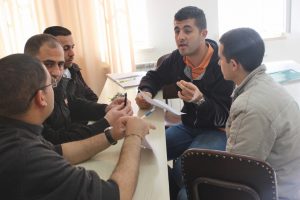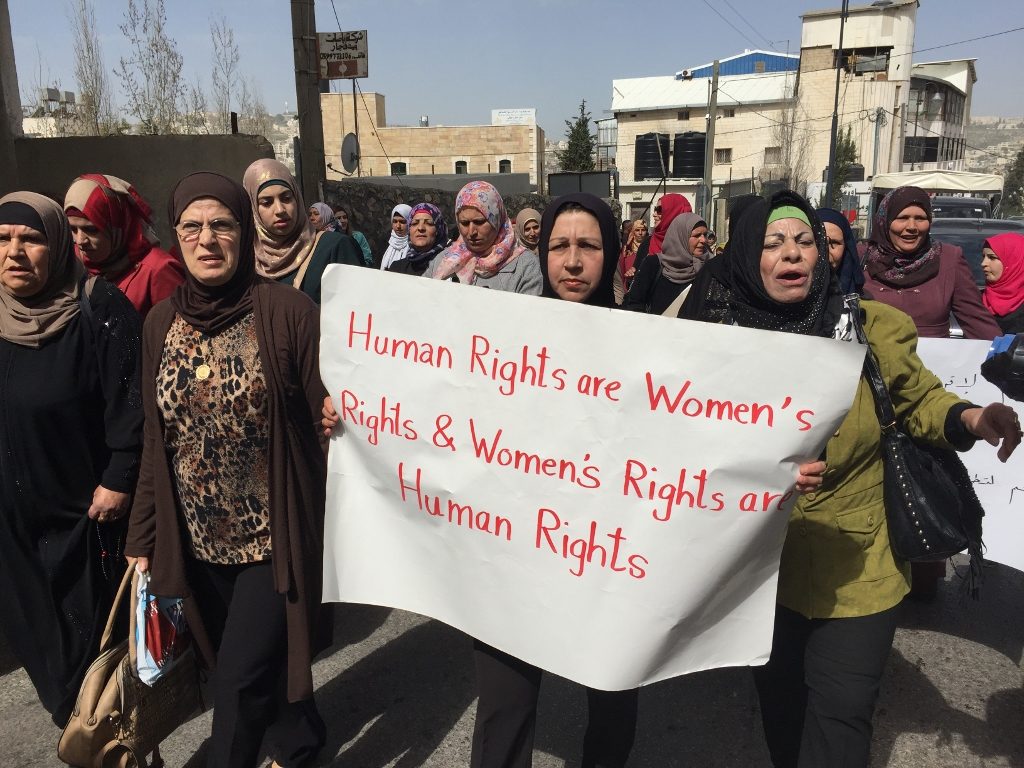Our physical presence next to the Wall is a continuous non-violent resistance. By having a community center with a garden, playground, and place for people to gather, we are more than anything showing our persistent resilience and commitment to peace and justice. Wi’am networks with other individuals and groups in the West Bank in order to build civil society and promulgate a culture of nonviolence.
 Much of our non-violent resistance is focused on Palestinian youth, because they have the potential to create great positive change in our society. Wi’am organizes trainings and capacity-building workshops for students on conflict transformation at universities and schools throughout the West Bank. We build the capacities of young people by training them as multipliers in areas of conflict transformation, advocacy, mediation, gender mainstreaming, leadership, human rights, intercultural dialogue, volunteerism and democracy. The training and knowledge that adults, youth and children gain pave the way for them to be positive actors in their communities and actively participate in resolving peer conflicts, engage in advocacy and non-violence activities and wisely plan for their own future and that of their communities.
Much of our non-violent resistance is focused on Palestinian youth, because they have the potential to create great positive change in our society. Wi’am organizes trainings and capacity-building workshops for students on conflict transformation at universities and schools throughout the West Bank. We build the capacities of young people by training them as multipliers in areas of conflict transformation, advocacy, mediation, gender mainstreaming, leadership, human rights, intercultural dialogue, volunteerism and democracy. The training and knowledge that adults, youth and children gain pave the way for them to be positive actors in their communities and actively participate in resolving peer conflicts, engage in advocacy and non-violence activities and wisely plan for their own future and that of their communities.
We are involved in activism in the community through vigils and demonstrations. We organize public gatherings to protest the occupation and the Wall as a form of non-violent resistance. We also organize ourselves to struggle non-violently to create a healthy society based on citizenship and separation of the four powers (executive, legislative, judicial, and media).

In the past, we have attended peaceful demonstrations against the uprooting and destruction of olive tree fields, the release of wrongfully imprisoned Palestinians, and the continued construction of the Apartheid Wall. We also attend interfaith vigils and prayer services for the restoration of justice to the Holy Land.
Wi’am’s work also promotes advocacy. Our programs teach Palestinian women, men, youth and children to express themselves in positive and meaningful ways. Their stories provide alternative narratives to the conflict.
Wi’am publishes a variety of manuals, books, and articles designed to educate larger groups of people about the conflict, which you can learn more about here. Simply publishing the everyday stories of Palestinians, as in the case of our Folded Pages book, is an act of nonviolent resistance that can create waves of change.
